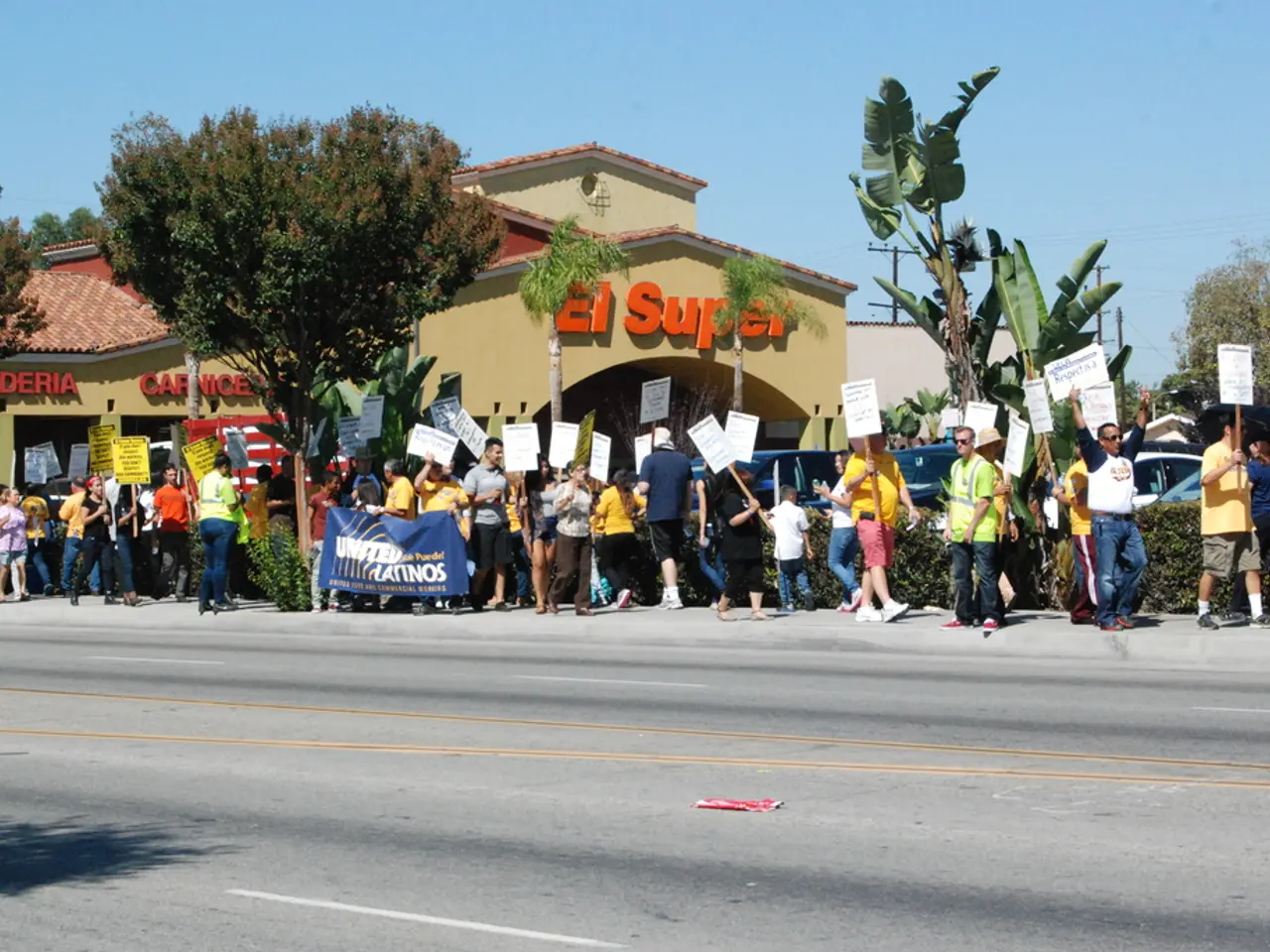Democrats contemplate staging a walkout to thwart Texas' redistricting plan
In the lead-up to the 2026 midterm elections, the potential walkout of Democratic state representatives in Texas during a special legislative session has sparked significant political and procedural implications. The walkout, designed to block Republican-led redistricting, could serve as a key resistance measure against efforts backed by Governor Greg Abbott and President Donald Trump to redraw the state's congressional maps.
The Texas House Democratic caucus has stated that they will use "whatever means necessary" to fight the redistricting effort. This declaration follows a two-hour Democratic call during which Hakeem Jeffries, the U.S. House leader, and Ken Martin, the Democratic National Committee chair, spoke with about 40 Texas House Democrats. While the leaders did not directly call for a walkout, they left the impression that it should be considered.
The walkout would temporarily halt legislative proceedings on the redistricting plan, as the Texas House requires a quorum to conduct business. However, previous walkouts have only delayed rather than prevented Republican redistricting efforts. Sen. John Cornyn supports Trump's push to redistrict the state before the 2022 midterms, stating it would mean significant gains for Texas Republicans.
Each member who walks out would face a fine of $500 a day under the rules adopted by the Republican-dominated Texas House, totaling $15,000 per member for the entire 30-day special session. Texas Attorney General Ken Paxton has threatened to assist law enforcement in arresting any Democrats who participate in a potential new walkout.
If Democrats in the Texas House choose to walk out, they would need 51 out of 62 members to sign onto the walkout. The walkout would signal strong Democratic opposition to what they call a politically motivated "power grab" by Republicans seeking to redraw maps to gain five additional U.S. House seats.
National Democratic leaders are encouraging Texas House Democrats to consider walking out of the special legislative session this month to block Republicans from redrawing the state's congressional maps. The redistricting of House seats is supposed to occur every decade, but this instance in the middle of the decade is rare and contentious.
The conflict highlights deep national partisan tensions over congressional maps and voting power. Beyond Texas, this redistricting fight could ignite broader partisan confrontations, with Democratic leaders in other states pledging to counteract aggressive Republican gerrymandering efforts.
The new maps could face court challenges on constitutional grounds, particularly related to racial gerrymandering. If Republicans succeed in redrawing districts to gain five seats, this could strengthen their narrow House majority, shaping the national balance of power for the 2026 midterms.
U.S. Rep. Lizzie Fletcher, a Democrat, stated that what is happening is an unacceptable betrayal of Texans. Eric Holder, who served as attorney general under President Barack Obama, participated in the Democratic call. Jeffries and Martin, leaders of the Democratic National Committee, did not immediately respond to requests for comment.
The implications of this potential walkout are vast, including quorum denial as a legislative tactic, political symbolism and resistance, potential for political escalation, legal and constitutional debates, and potential outcomes such as delay but eventual passage, escalation of partisan conflict, legal challenges, and impact on midterm elections.
Fletcher endorsed action but said the decision about how to fight back would be made by Democratic members of the state Legislature. Democrats in the state Legislature have a history of using quorum breaks to try to stop congressional gerrymandering by Texas Republicans, with examples in 2003 and 2021.
- The potential walkout by Democratic state representatives in Texas during a special legislative session is not only a political maneuver but also a symbol of resistance against war-and-conflicts over policy-and-legislation, specifically the redistricting efforts backed by Governor Greg Abbott and President Donald Trump.
- The Texas House Democrats' decision to consider a walkout to block the redistricting effort could have significant implications for crime-and-justice, as each member who walks out would face a fine and the potential for arrest, as threatened by Texas Attorney General Ken Paxton.
- Beyond the immediate impact in Texas, the redistricting fight could politicize general-news, with Democratic leaders in other states pledging to counteract aggressive Republican gerrymandering efforts, potentially igniting broader partisan confrontations and shaping the national balance of power for the 2026 midterm elections.






